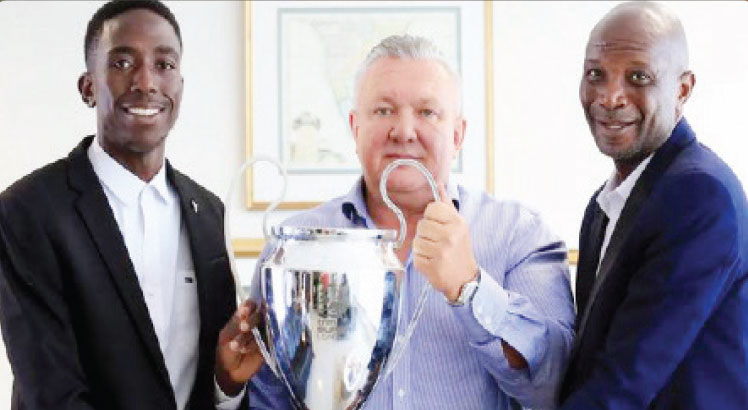Cyclone drums up pleasfor loss and damage funds
For people in the forefront of the climate crisis, time is of the essence.
This is true for southern Africa where the devastating Cyclone Freddy laid bare low-income countries’ high vulnerability to extreme climate events.
In the worst-hit Malawi, the storm killed more than 600 people and displaced at least 650 000 more, while also dismantling infrastructures and livelihoods.
A patchwork of disparate ‘loss and damage finance’ is now being fast-tracked to help countries like Malawi recover and prepare for future hazards.
But the nation’s leaders and international campaigners are urging rich nations to quickly deploy more substantial, structural and unconditional funds.
If it takes too long for loss and damage money to be available, they warn, communities could be trapped in perpetual vulnerability.
Devastating impact on Malawi
In Malawi extreme weather events such as floods and seasonal droughts are becoming more frequent and more intense due to climate change.

Government estimates that the country loses an average of 1.7 percent of its gross domestic product every year as a result of climate-related disasters.
The longest-lasting tropical cyclone was the third extreme weather event to strike Malawi in a 13 months period.
Zoha Shawoo, a researcher at the Stockholm Environment Institute, says if communities cannot recover from the loss and damage caused by one event, they will be more and more vulnerable to future ones.
“There is a need for urgency in delivering funds, but also for dedicated, long-term support for recovery and rehabilitation,” said the expert.
At CoP27, the United Nations Climate Change Conference held in Egypt last year, governments agreed to set up a fund for vulnerable communities hit by climate disasters.
Now a UN transitional committee of 24 government envoys is tasked to draw guidelines, including who pays in, who benefits and how the money is handed out.They met for the first time in Egypt last month.
Earlier, President Lazarus Chakwera said loss and damage payments are needed “right now”.
“Those nations that have made pledges in the past need to put their money where their climate change mouths are,” he told CNN.
Long road ahead
While the inaugural meeting has been described as successful in laying the groundwork, some observers have expressed concern over the pace of the action.
The committee has scheduled three more meetings this year ahead of CoP28 slated for November in the United Arab Emirates. Then the fund will need to be filled and made operational.
Shawoo does not expect to see money flowing for at least the next two years.
Scotland became the first nation to stump up cash for loss and damage by giving a small grant to Malawi.
After Cyclone Freddy, other measures to avert, minimise and address loss and damage are being fast-tracked.
A spokesperson for the World Meteorological Organisation (WMO) said the tragedy had “added impetus” to the UN -backed initiative to get everyone in the world protected by early warning systems by 2027.
UN Secretary-General Antonio Guterres has convened an advisory panel on the initiative, which will focus initial efforts on 30 vulnerable countries. These include Mozambique and Madagascar, which were hit by Cyclone Freddy along with Malawi.
G7 has initiated the Global Shield for pre-arranged financial support to be quickly deployed during climate disasters. This initiative has initial funding of $210m available, with Germany by far its biggest backer, and works with V20, a group of 20 highly vulnerable countries.
Its initial focus has been mostly directed at insurance-based measures like social protection systems, risk-sharing networks, and credit guarantees.
But critics say insurance products tend to have limited coverage for certain events, unpredictable payouts and obstacles to access to certain sections of the population.
Germany and V20 told Climate Home News negotiations are driven by the recipient countries so the packages will include the most suitable tools for them.
While there is no specific timeline, the expectation is the first batch of funding could be delivered by the end of 2023.
The V20 finance adviser Sara Jane Ahmed says all parties need to “work round the clock” to get a deal with Malawi over the finish line.
“Extreme weather events are not new in Malawi. They should have resources available ahead of time so they could reduce the damage of the impact. That’s why we are accelerating things as fast as possible,” she said.
Alongside insurance products, Ahmed says the V20 is working on giving Malawi small grants so that impacted communities can replace infrastructure and livelihoods quickly.—Climate Home News





